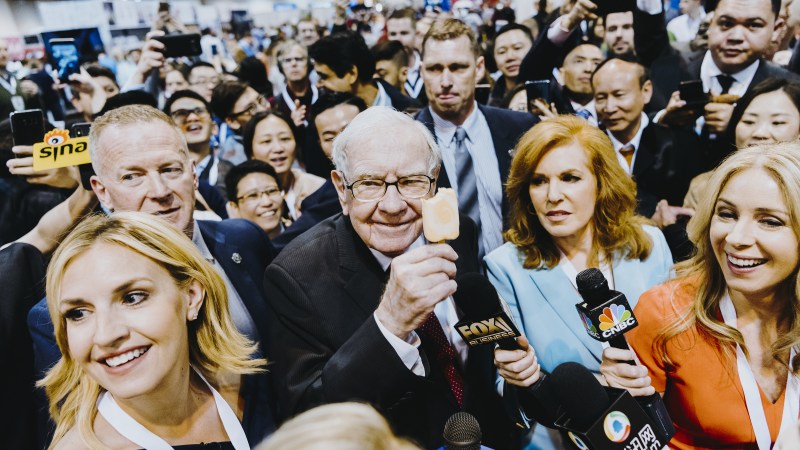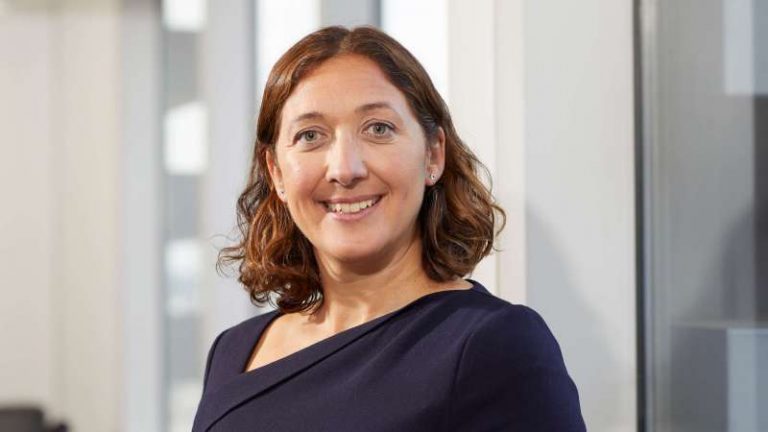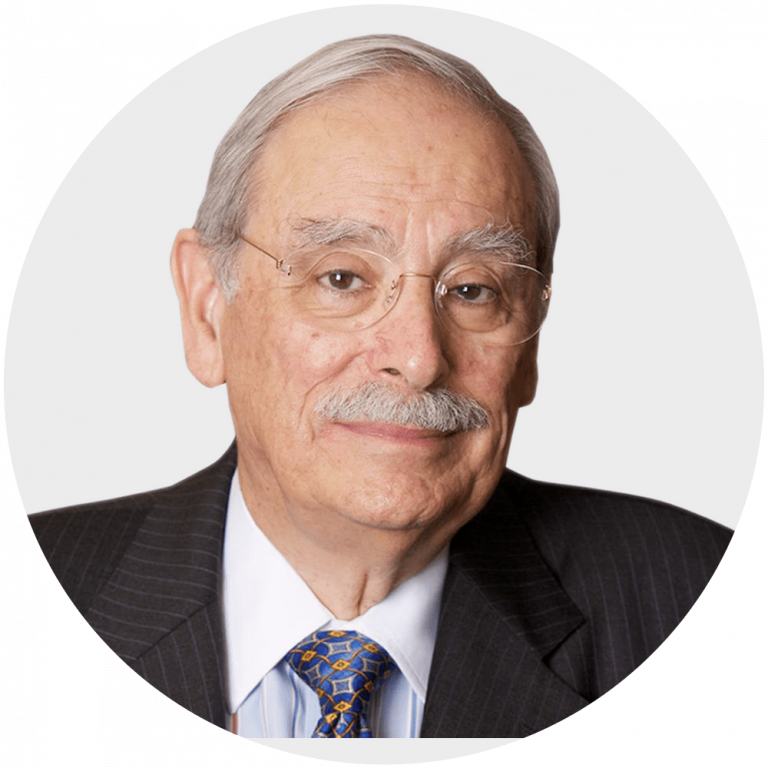All eyes are on what Warren Buffett will do next
Warren Buffett famously once said: “Rule No 1, never lose money; rule No 2, never forget rule No 1.” In the sell-off that gripped global stock markets a week ago, avoiding losses was exactly what investors were trying to do.
Equities from Japan to Britain to the United States tumbled as fears about the health of the American economy, worries about the lofty valuation of technology stocks and the unwinding of a popular trading strategy involving the yen combined to drive a rout in share prices.
Indeed, Buffett himself may have played an inadvertent role in the turmoil. On the Saturday before the rout, second-quarter results from Berkshire Hathaway, the business run by the billionaire investor, showed that it had been a big net seller of equities in the three months to the end of June, mainly by almost halving its stake in Apple, and had boosted its cash pile to record levels.
In an already febrile atmosphere pervading stock markets, which had suffered falls in the previous session, these revelations about Berkshire’s portfolio stoked speculation that Buffett was positioning the business for an economic downturn and a slump in technology stocks. Given the 93-year-old’s status as one of the world’s most renowned stockpickers, one whose investments are followed particularly closely, this is thought to have contributed to wider market nervousness and to have exacerbated the sell-off at the beginning of last week, one in which Apple suffered a one-day share price fall of 4.8 per cent.
All this has drawn attention to the influential position that Buffett holds in the investment world. More specifically, it has prompted an analysis of Buffett’s portfolio and his past bets in an attempt to divine his views on the directions of both the US economy and the stock market.
“It certainly looks like he is positioning Berkshire to have a reduced risk profile and be in a cash position to take advantage of any opportunities,” Bill Stone, the chief investment officer of Glenview Trust, a Berkshire shareholder, said.
Buffett has built his reputation and his fortune on Berkshire. A beleaguered textile manufacturer when he took control of the Omaha-based business in 1965, he has transformed it into a sprawling conglomerate through a string of deals. Its wholly owned subsidiaries now include significant operations in insurance, including Geico, a provider of motor cover, as well as businesses spanning everything from Fruit of the Loom, the clothing group, to the BNSF railroad. Along the way, Buffett has generated stunning returns for shareholders. Berkshire’s shares were worth $18 when he took over the business; today, its class A stock is valued at $647,523.
The performance of Berkshire’s portfolio of listed equity holdings has further cemented Buffett’s status as a stock market superstar, earning him the sobriquet “the Sage of Omaha” because of his canny market bets. No wonder recent changes to this portfolio have drawn scrutiny.
The latest quarterly figures from Berkshire showed it had sold a net $75.5 billion of shares in the three months to the end of June, helping to push its cash position, including equivalents, to a record high of almost $277 billion. Its Apple stake, which Berkshire started building in 2016, was cut to a holding worth $84.2 billion, down from $135.4 billion three months earlier and $174.3 billion at the end of December. Separately, recent US filings showed that Buffett’s group had pared back its investment in Bank of America, Berkshire’s second largest stock market holding, to just over 12 per cent.

Paul Lountzis, of Lountzis Asset Management, another Berkshire shareholder, said Buffett’s decision to reduce the Apple stake had been “a great move. Apple is a great company, but the valuation is ahead of itself.” Apple shares reached a record high in mid-July to almost $235 apiece, valuing the maker of iPhones, iPads and Macbooks at about $3.6 trillion.
Selling Apple shares helped to increase the size of Berkshire’s mammoth cash reserves, which include $234.6 billion of short-maturity treasury bills, a holding that surpasses even that of the US Federal Reserve, the American central bank. Treasuries, which are US government debt, typically are used by investors as a risk-free place to park their cash and at Berkshire’s annual meeting in May Buffett described them as “the safest investment there is”.
He has drawn attention for his big cash holdings in the past, notably in the run-up to the 2007-09 financial crisis. Berkshire had amassed about $43 billion in cash by early 2005 and had a similar amount at the start of 2008. In 2003, Buffett also warned that derivatives were “financial weapons of mass destruction”. This proved prescient, with derivatives tied to mortgages being a significant cause of the meltdown that began in 2007.
When markets went into a tailspin as the global financial crisis unfolded, Buffett seized on the turmoil to make canny investments in troubled listed companies, including a $5 billion bet on Goldman Sachs and putting $3 billion into Dow Chemical, both in 2008 and both resulting in handsome returns. He did the same in 2011 when Bank of America was plagued by fears about its financial health. It was another investment that proved lucrative.
Bryant VanCronkhite, a fund manager at Allspring Global Investments, who holds Berkshire stock, said: “Buffett and Berkshire Hathaway have a reputation for selling when other investors are greedy and buying at the bottom of cycles when other investors are fearful.”
One catalyst for the recent market sell-off was disappointing labour market data in the United States, which showed that American employers had added only 117,000 jobs last month, significantly short of the 175,000 that had been forecast by economists. This raised fears that the US economy is heading for a sharp slowdown and that the Fed had erred on July 31 when it opted to hold interest rates at a 23-year high. That decision means the US central bank has diverged from the Bank of England, the European Central Bank and the Bank of Canada, all of which have started to cut borrowing costs, having rapidly lifted them to contain inflation.

Investors are now betting that the Fed’s next move will be to lower rates, which will hit the returns that holders of treasuries, including Buffett, earn from the debt.
“I don’t believe Buffett is positioning for a hard landing per se, but rather is trimming stocks that have materially outperformed,” VanCronkhite said, “to position to rotate capital at more attractive valuations in the future. That may or may not come as a result of a recession.”
Berkshire did not return a request for comment on its investment strategy and Buffett’s silence since the release of its quarterly figures has left investors scouring his comments at the company’s most recent annual meeting for clues on the rationale for his positioning. He said at the gathering in May that Berkshire would “love to spend” its cash but would not unless it could find “something that has very little risk and can make us a lot of money”.
The veteran investor, who previously has called searching for big deals “elephant hunting”, added: “I don’t mind at all building the cash position. When I look at the alternatives, what’s available in equity markets and the composition of what’s going on in the world, we find it quite attractive.”
Nevertheless, he has always been a proponent of owning shares in the long run. In his latest annual letter to Berkshire shareholders, released in February, he wrote: “I can’t remember a period since March 11, 1942, the date of my first stock purchase, that I have not had a majority of my net worth in equities, US-based equities.”






